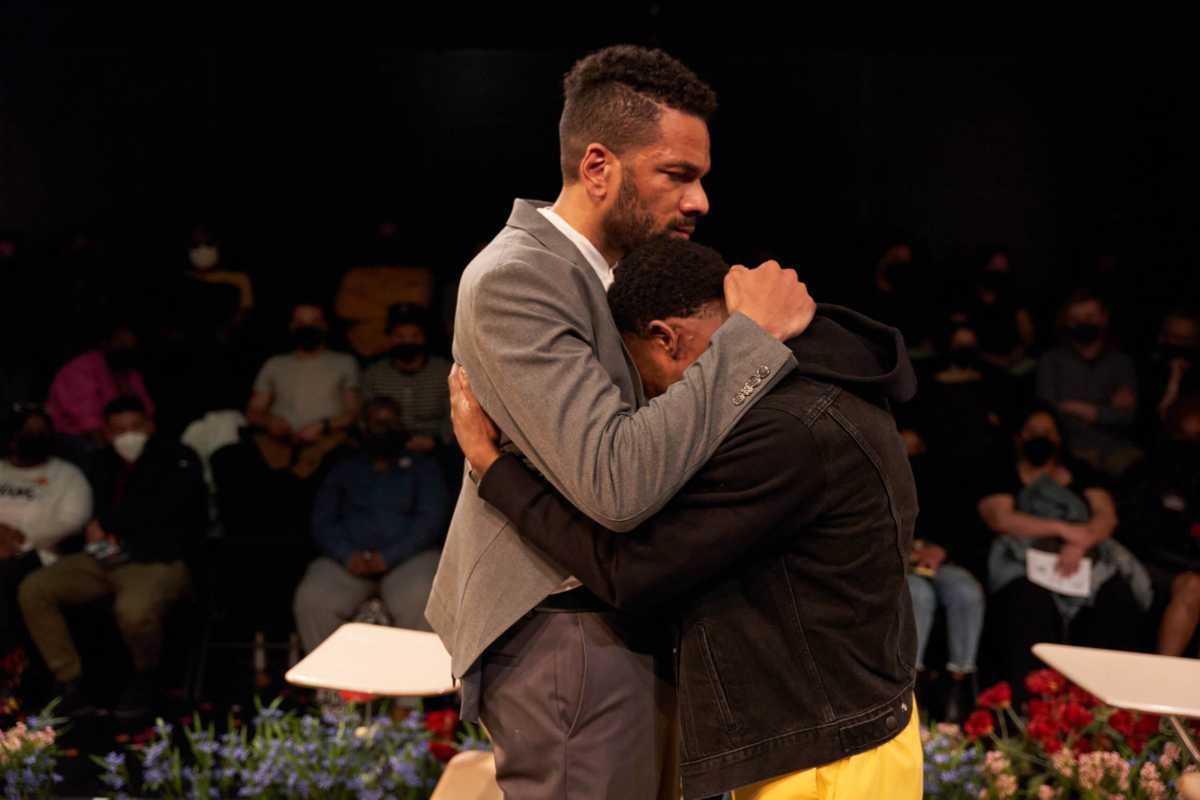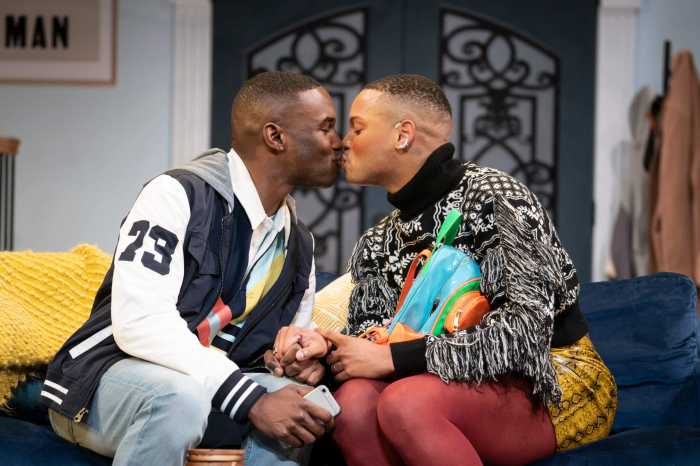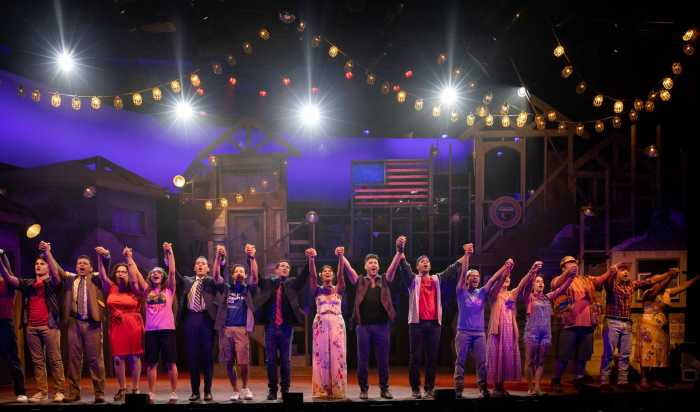The roughly lyrical and profoundly moving “Soft,” now getting its world premiere at MCC, is a multi-faceted play that is both an indictment of depersonalized institutions and a challenge to cultural norms and expectations that are depersonalizing in their own ways.
Donja R. Love’s play is set in the English class of a youth correctional institution — one step away from prison for the six young, Black men who are studying “Othello,” using rap as a form of expression, and doing their best to survive. The title is an ironic nod to the spiritual and emotional state these men long for but are unable to achieve because they live in a world that will not allow it.
Whether getting by on the street or suppressing their love for another man, softness of any kind is forbidden, which in turn alienates them from their authentic selves. Even their teacher Mr. Isaiah, who is not that much older than his students, is accused of being soft by the head of the institution in encouraging his students to express themselves and expand their belief in what is possible. The goal of the institution is not to develop young minds but to simply move them through the system without incident. Therein lies the conflict as Mr. Isaiah believes the young men can be more, and when one student commits suicide, he doubles down on trying to reach and help them, even at the potential expense of his emotional well-being and his job. He is of the world these young men come from and struggles to show them a way out.
The play is in the vein of movies like “Good Will Hunting,” “The Prime of Miss Jean Brodie,” and “Mona Lisa Smile,” as well as novels like “A Separate Peace,” and even “Catcher in the Rye.” Love deftly uses the trope of the high school and dynamic teacher, and he is a master of exposition — bringing the audience into the lives of the characters elegantly and organically so that the characters are compelling and complex. There is an immediacy about each of them that allows the audience to see beneath the performed personalities to the shrouded hearts causing so much pain.
The essential question is: Who would these men be if they were allowed to be soft? After the suicide of Kevin early in the play, his best friend Antoine refuses to speak. He vehemently denies that he may have contracted HIV from Kevin and refuses to be tested, as it would be a threat to his masculinity — and an admission of being soft. Dee, the only openly gay character, flaunts his sexuality, as much a statement as a defense, and he transforms his shapeless yellow uniform into the closest he can get to club chic with a pair of scissors and some artful gathering.
The other characters are all struggling in different ways. Bashir turns his fear to aggression. Jamal wrestles with the guilt of the damage he’s done dealing drugs. Eddie suffers from failing to protect his mother in a harsh world. In each of these characters, we see how societal structures and systemic racism have boxed in and imposed limits on them. At the same time, though, we often see they are just kids who need help from a system that is not set up to provide it.
Whitney White directs the ensemble with sensitivity and strength, and the cast is outstanding. Dharon Jones as the tormented Antoine commands his role with quiet and stillness until he breaks out. Essence Lotus as Dee finds the solid man beneath his flamboyance. Ed Ventura as Eddie beautifully portrays a character who never knows what to do with his emotions. Travis Raeburn as Bashir finds all the nuance of a young man not fully comfortable in his identity. Shakur Tolliver is sweet and vulnerable as Kevin. As Mr. Isaiah, Biko-Eisen Martin beautifully expresses what it means to see potential being hampered in his students and the grief it causes him. Leon Addison Brown as Mr. Cartwright, the school’s director, is caught between his institutional duties and his compassion. Together, these distinct performances and well-crafted characters illuminate the humanity of people too often marginalized.
The play ends on a hopeful note in a poetic coda. It imagines what could be if we were indeed allowed to be soft. It is bittersweet and beautiful.
Soft | Robert Wilson Space at MCC | 511 West 52nd Street | Tues-Sat 7:30 p.m.; Sat, Sun 2:30 p.m. through July 10 | $39-$68 | mcctheater.org | 1 hour, 40 min, no intermission



































